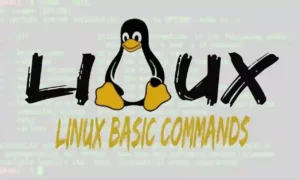
Top Linux Basic Commands You Need to Know in 2024
Introduction
Linux is one of the most powerful and widely used operating systems in the world, powering everything from servers to smartphones. Whether you’re a developer, system administrator, or just a tech enthusiast, understanding Linux basic commands is essential for efficiently managing your system. In this guide, we’ll walk you through the most important Linux basic commands that every beginner should know.
Why Learn Linux Basic Commands?
Before diving into the commands, it’s important to understand why learning Linux basic commands is crucial:
Efficiency:Command-line tools are often faster and more efficient than graphical interfaces.
Flexibility: Commands allow you to perform complex tasks with just a few keystrokes.
Automation:Scripting with Linux commands can automate repetitive tasks.
Career Growth: Linux skills are in high demand in the tech industry.
Now, let’s explore the essential Linux basic commands.
Navigating the File System
One of the first things you’ll need to do in Linux is navigate the file system. Here are the key commands:
- pwd (Print Working Directory): Displays the current directory you’re in.
pwd- ls (List): Lists files and directories in the current directory.
ls- cd (Change Directory):Moves you to a different directory.
cd /path/to/directory- mkdir (Make Directory): Creates a new directory.
mkdir new_folder- rmdir (Remove Directory):Deletes an empty directory.
rmdir empty_folderFile Management
Managing files is a core part of using Linux. Here are the basic commands:
- touch:Creates an empty file.
touch newfile.txt- cp (Copy): Copies files or directories.
cp file1.txt /path/to/destination- mv (Move): Moves or renames files or directories.
mv oldfile.txt newfile.txt- rm(Remove):Deletes files or directories.
rm file.txt- cat(Concatenate): Displays the contents of a file.
cat file.txt